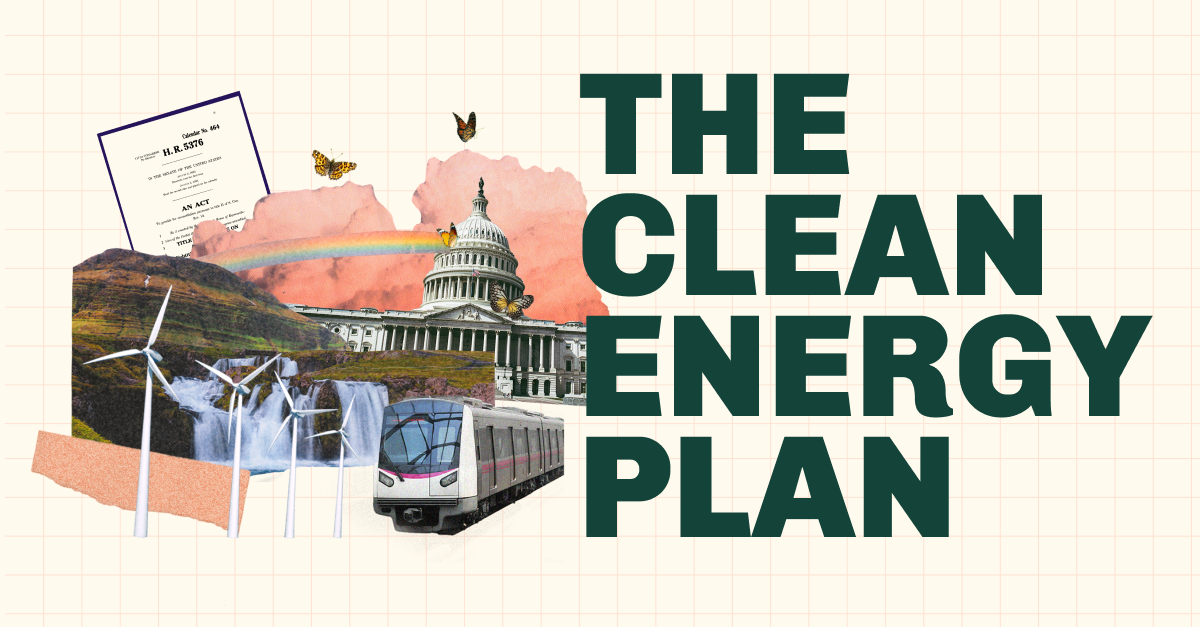Clean Energy Boom Undermined: Analyzing The Opposition

Table of Contents
Financial Interests and Lobbying Efforts Against Clean Energy
Established fossil fuel industries, with massive investments in oil, gas, and coal, represent a powerful force behind clean energy opposition. Their financial interests are intrinsically linked to the continued consumption of fossil fuels, making the transition to renewable energy a direct threat to their profits and market dominance. This threat fuels substantial lobbying efforts aimed at hindering or delaying the implementation of clean energy policies.
- Protecting Existing Investments: Billions of dollars are invested in fossil fuel infrastructure, making a rapid shift to clean energy a significant financial risk for these companies. This incentivizes them to actively lobby against policies that could devalue their assets.
- Maintaining Market Share: Fossil fuel companies fight to maintain their market share against the growing competition from renewable energy sources. Lobbying efforts are used to shape regulations and public opinion, hindering the growth of the clean energy sector.
- Examples of Lobbying Efforts:
- Successful campaigns delaying or weakening renewable energy mandates.
- Funding of think tanks and research organizations to produce reports downplaying the threat of climate change or the viability of renewable energy.
- Direct lobbying of politicians to influence legislation and regulatory decisions. Groups like the American Petroleum Institute (API) and similar organizations worldwide are key players.
Political Polarization and Ideological Resistance to Clean Energy
The transition to clean energy has become increasingly politicized, with differing ideological stances contributing significantly to clean energy opposition. In many countries, support for renewable energy is strongly correlated with political affiliation, creating a partisan battleground around climate policy.
- Ideological Arguments: Opponents often raise concerns about government overreach, arguing that subsidies for renewable energy represent unfair market intervention. Others cite potential economic consequences, such as job losses in the fossil fuel sector, without adequately addressing the job creation potential of the clean energy sector.
- Political Rhetoric and Media Narratives: Politicians and media outlets often amplify these concerns, contributing to public skepticism and confusion. The framing of climate change and clean energy solutions as partisan issues actively fuels division and hinders progress.
- Examples of Political Influence:
- The rolling back of environmental regulations by certain governments.
- The deliberate underfunding of renewable energy research and development initiatives.
- The spread of misinformation through political channels, associating clean energy with negative economic impacts.
Technological and Infrastructure Challenges Hindering Clean Energy Adoption
While renewable energy technologies are rapidly advancing, several technological and infrastructural challenges still contribute to clean energy opposition and slow down widespread adoption.
- Intermittency of Renewable Energy: Solar and wind power are intermittent sources, meaning their output fluctuates depending on weather conditions. This presents challenges for grid stability and reliability.
- Grid Modernization and Energy Storage: Integrating large amounts of renewable energy into existing grids requires significant upgrades and investments in smart grids and energy storage solutions.
- High Upfront Costs: The initial investment costs for renewable energy infrastructure, such as solar farms and wind turbines, can be substantial, representing a barrier for many countries and communities.
- Addressing the Challenges:
- Advancements in battery technology are providing more efficient and cost-effective energy storage solutions.
- Smart grid technologies improve grid management and integration of intermittent renewable sources.
- Financial incentives and innovative financing models are helping to reduce the upfront costs of clean energy projects.
Public Misconceptions and the Spread of Disinformation Regarding Clean Energy
Public misconceptions and the deliberate spread of disinformation are powerful contributors to clean energy opposition. These factors fuel public resistance and create obstacles to policy changes.
- Common Misconceptions: Many people still believe that renewable energy is too expensive, unreliable, or environmentally damaging. These misconceptions are often fueled by misinformation campaigns.
- Disinformation Campaigns: Well-funded campaigns actively spread misleading information about the costs, environmental impacts, and feasibility of renewable energy. Social media platforms, in particular, are often exploited to disseminate these narratives.
- Combating Misinformation: Efforts to debunk myths and promote accurate information are crucial to overcoming this challenge. This includes investing in science communication, promoting media literacy, and supporting fact-checking initiatives. Examples of common myths include the belief that wind turbines kill large numbers of birds (the impact is demonstrably less than that of other sources), and that solar panels are environmentally harmful to produce (while requiring resources, their life cycle emissions are far lower than those of fossil fuels).
Conclusion
The transition to a clean energy future faces significant obstacles from various sources of clean energy opposition. Financial interests, political polarization, technological hurdles, and the spread of misinformation all play a significant role in slowing down progress. Overcoming this opposition requires a multi-pronged approach that addresses these challenges simultaneously. We must actively combat misinformation, advocate for supportive policies, and invest in technological advancements.
To ensure a sustainable future, we need to become informed advocates. Support organizations dedicated to clean energy, educate your friends and family about the benefits of renewable energy, contact your political representatives, and consider investing in clean energy companies. The urgency to overcome clean energy opposition cannot be overstated; our planet's future depends on it.

Featured Posts
-
 Eurovision 2025 Meet The Contestants
May 20, 2025
Eurovision 2025 Meet The Contestants
May 20, 2025 -
 Tadic In Fenerbahce Den Ayriligi Resmen Onaylandi
May 20, 2025
Tadic In Fenerbahce Den Ayriligi Resmen Onaylandi
May 20, 2025 -
 Huuhkajien Avauskokoonpano Naein Se Muuttui
May 20, 2025
Huuhkajien Avauskokoonpano Naein Se Muuttui
May 20, 2025 -
 Watch Susan Luccis Hilarious Water Prank On Michael Strahan
May 20, 2025
Watch Susan Luccis Hilarious Water Prank On Michael Strahan
May 20, 2025 -
 Wayne Gretzkys Daughter Paulina A Rare Public Appearance With Her Husband
May 20, 2025
Wayne Gretzkys Daughter Paulina A Rare Public Appearance With Her Husband
May 20, 2025
Latest Posts
-
 Jacob Friis Seger I Malta Trots Kaempig Match
May 20, 2025
Jacob Friis Seger I Malta Trots Kaempig Match
May 20, 2025 -
 Kampen I Malta Jacob Friis Startar Med Seger
May 20, 2025
Kampen I Malta Jacob Friis Startar Med Seger
May 20, 2025 -
 Bortaseger I Malta Inleder Jacob Friis Nya Era
May 20, 2025
Bortaseger I Malta Inleder Jacob Friis Nya Era
May 20, 2025 -
 Seger Foer Jacob Friis I Malta Trots Tuff Match
May 20, 2025
Seger Foer Jacob Friis I Malta Trots Tuff Match
May 20, 2025 -
 Svart Men Segerrikt Jacob Friis Inleder Med Bortaseger I Malta
May 20, 2025
Svart Men Segerrikt Jacob Friis Inleder Med Bortaseger I Malta
May 20, 2025
